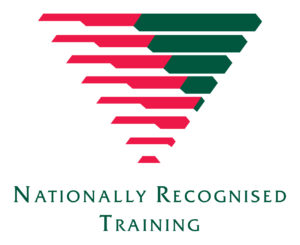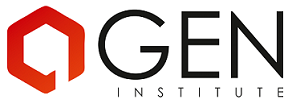| National Course Code: CPC30611 | Full time Course |
| CRICOS Code: 098344k | Location: Melbourne, Australia |
| Delivery Mode: Face to Face | Tution Fees |
| Enrolment Fee: AUD$ 200 | Material Fees: AUD$ 800 |
| Campuses: | Practical – 238 Union Road,Ascot Vale, Vic
Theory – 416-420 (Basement) Collins Street Melbourne, Vic |

Qualification Description
This qualification provides a trade outcome in painting and decorating for residential and commercial construction work.
Occupational titles may include:
Painter and Decorator
The qualification has core unit of competency requirements that cover common skills for the construction industry, as well as two specialist fields of work.
The construction industry strongly affirms that training and assessment leading to recognition of skills must be undertaken in a real or very closely simulated workplace environment and this qualification requires all units of competency to be delivered in this context.
Completion of the general induction training program specified by the National Code of Practice for Induction Training for Construction Work (ASCC 2007) is required before entering a construction work site. Achievement of unit CPCCOHS1001A covers this requirement.
Entry Requirments
-
18 years or older
-
Completion of Year 11 (Australia) or overseas equivalent
-
IELTS 5.5 or equivalent
-
Meet Student Visa requirements where applicable
-
Prospective students seeking for enrolment at Gen Institute will have to successfully complete a placement test at the required ACSF level of qualification that provides Gen Institute insight into student’s capability and helps it make a decision on whether the student possess sufficient LLN skills to pursue the qualification they are looking to be enrolled in.
- Completion of unit CPCCWHS1001 – Prepare to work safely in the construction industry, students would be required to undertake training and assessment of this unit at Gen Institute or any other RTO prior to enrolling into this qualification.
- Physical Requirements: Students who participate in this course will be required to undertake manual handling and physical labour. Those with a history of back or health issues may not be appropriate to take this course.
- 18 years or older
- Satisfactorily completed Year 11 or equivalent
- Prospective students seeking for enrolment at Gen Institute will have to successfully complete a placement test at the required ACSF level of qualification that provides Gen Institute insight into student’s capability and helps it make a decision on whether the student possess sufficient LLN skills to pursue the qualification they are looking to be enrolled in.
- Completion of unit CPCCWHS1001 – Prepare to work safely in the construction industry, students would be required to undertake training and assessment of this unit at Gen Institute or any other RTO prior to enrolling into this qualification.
- Physical Requirements: Students who participate in this course will be required to undertake manual handling and physical labour. Those with a history of back or health issues may not be appropriate to take this course.
Duration
Total duration for this qualification is 60 weeks (including 10 Weeks Holidays). Students study minimum 20 hours a week face to face.
Units of competency
(27 units must be completed for this qualification which includes 23 Core units and 4 electives)
Certificate III in Painting and Decorating |
|---|
| CPCCCM1012A Work effectively and sustainably in the construction industry – Core |
| CPCCCM1013A Plan and organise work – Core |
| CPCCCM1014A Conduct workplace communication – Core |
| CPCCCM1015A Carry out measurements and calculations – Core |
| CPCCCM2001A Read and interpret plans and specification – Core |
| CPCCCM2003B Calculate and cost construction work – Core |
| CPCCOHS2001A Apply OHS requirements, policies and procedures in the construction industry – Core |
| CPCCCM2010B Work safely at heights – Core |
| CPCCCM3001C Operate elevated work platforms – Core |
| CPCCPB3026B Erect and maintain trestle and plank systems – Core |
| CPCCPD2011A Handle painting and decorating materials – Core |
| CPCCPD2012A Use painting and decorating tools and equipment – Core |
| CPCCPD2013A Remove and replace doors and door and window components – Core |
| CPCCPD3021A Prepare surfaces for painting – Core |
| CPCCCM2008B Erect and dismantle restricted height scaffolding – Core |
| CPCCPD3022A Apply paint by brush and roller – Core |
| CPCCPD3023A Apply texture coat paint finishes by brush, roller and spray – Core |
| CPCCPD3024A Apply paint by spray – Core |
| CPCCPD3025A Match specified paint colour – Core |
| CPCCPD3026A Apply stains and clear timber finishes – Core |
| CPCCPD3027A Apply wallpaper – Core |
| CPCCPD3028A Apply decorative paint finishes – Core |
| CPCCPD3031A Implement safe lead paint and asbestos work practices in the painting industry – Core |
| CPCCPD3029A Remove graffiti and apply protective coatings – Elective |
| CPCCPD3030B Apply protective paint coating systems – Elective |
| CPCCPD3032A Apply advanced wallpaper techniques – Elective |
| CPCCSP3003A Apply trowelled texture coat finishes – Elective |
Fees
Enrolment Fees – Non-Refundable AUD $200.00 Per Student
Tuition Fees Certificate iii in Painting and Decorating – AUD $11000.00
Material Fee Certificate iii in Painting and Decorating – AUD $800.00
Course fee and itemized fee details are available here. Payment plan option is available to students. All fees are subject to change at any time.
Recognition of Prior Learning (RPL)
Recognition of Prior Learning (RPL) and Credit Transfer – Learners with prior learning and work experience can apply for Recognition of Prior Learning. Learners who have completed corresponding units of competency and/or units contained within the packaging rules can apply for Credit Transfer.
Assessment Methods
Assessment is structured throughout the course. If learners are unable to achieve competency, additional support is provided through mentoring and access to re-assessment as outlined in the Gen Institute’s policies and procedures. Learners who are working in an appropriate business environment are able to base relevant assessment tasks on their workplace. This will be negotiated between the learner and the assessor. Assessment requires achievement across all tasks to demonstrate competence.
Assessment is carried out through a range of the following tasks:
- Project Report
- Questioning
- Demonstration/Observation
- Written Questions
- Case Study
- Third Party Report
Safety Requirement
Every student is required to wear their own Personal Protection Equipment(PPE):safety boots and protective clothing at every training session/practical demonstration session.


